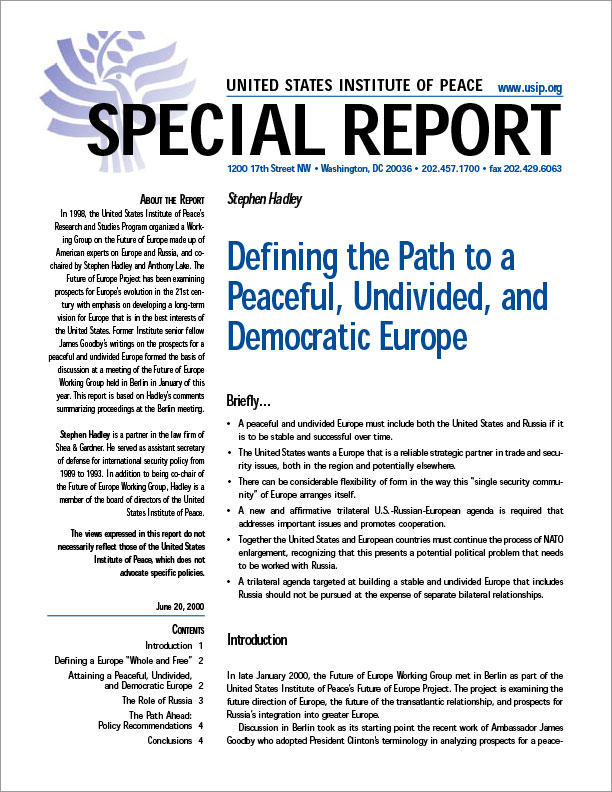Defining the Path to a Peaceful, Undivided, and Democratic Europe

Summary
- A peaceful and undivided Europe must include both the United States and Russia if it is to be stable and successful over time.
- The United States wants a Europe that is a reliable strategic partner in trade and security issues, both in the region and potentially elsewhere.
- There can be considerable flexibility of form in the way this "single security community" of Europe arranges itself.
- A new and affirmative trilateral U.S.-Russian-European agenda is required that addresses important issues and promotes cooperation.
- Together the United States and European countries must continue the process of NATO enlargement, recognizing that this presents a potential political problem that needs to be worked with Russia.
- A trilateral agenda targeted at building a stable and undivided Europe that includes Russia should not be pursued at the expense of separate bilateral relationships.
About the Report
In 1998, the United States Institute of Peace's Research and Studies Program organized a Working Group on the Future of Europe made up of American experts on Europe and Russia, and co-chaired by Stephen Hadley and Anthony Lake. The Future of Europe Project has been examining prospects for Europe's evolution in the 21st century with emphasis on developing a long-term vision for Europe that is in the best interests of the United States. Former Institute senior fellow James Goodby's writings on the prospects for a peaceful and undivided Europe formed the basis of discussion at a meeting of the Future of Europe Working Group held in Berlin in January of this year. This report is based on Hadley's comments summarizing proceedings at the Berlin meeting.
Stephen Hadley is a partner in the law firm of Shea & Gardner. He served as assistant secretary of defense for international security policy from 1989 to 1993. In addition to being co-chair of the Future of Europe Working Group, Hadley is a member of the board of directors of the United States Institute of Peace.
The views expressed in this report do not necessarily reflect those of the United States Institute of Peace, which does not advocate specific policies.




